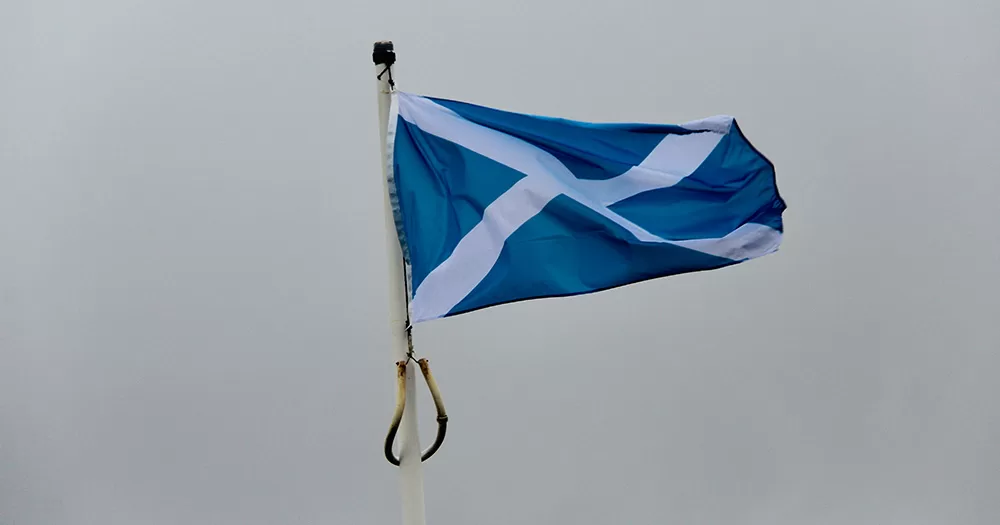The Hate Crime and Public Order (Scotland) Act has officially come into effect as of Monday, April 1. The legislation consolidates existing law on crimes “aggravated by prejudice” and introduces strengthened protections for people vulnerable to being targeted based on characteristics including age, disability, religion, sexual orientation, transgender identity or being intersex.
Inciting hate based on race, colour, nationality or ethnicity was already illegal under UK-wide measures in place since 1986, but will now fall under this new Act. Meanwhile, sex has been omitted from the new legislation, as a standalone bill designed to tackle misogyny is expected to be introduced later this year.
The measures were passed by the majority of Members of the Scottish Parliament (MSPs) in 2021 to criminalise “stirring up hatred” by communicating or behaving in a manner “that a reasonable person would consider to be threatening or abusive”. The maximum penalty for an offender is a prison sentence of seven years.
Despite the fact that the Scottish government has insisted that the new hate crime law does not stifle individual expression, certain people have claimed that it could harm freedom of speech. This includes UK Prime Minister Rishi Sunak, who in seemingly attempting to use transgender issues as a scapegoat, said, “People should not be criminalised for stating simple facts on biology.”
The Tory leader added, “We believe in free speech in this country, and Conservatives will always protect it.”
However, Victims and Community Safety Minister Siobhian Brown warned, “I think there has been a lot of misinformation.” She explained that to be convicted, “you have to be really threatening and really abusive, and there has to be reasonable assumption from others that that is the case.”
Regarding whether or not misgendering a person would be an offence, Ms Brown stated, “It would be a police matter for them to assess what happens. It could be reported and it could be investigated – whether or not the police would think it was criminal is up to Police Scotland.”
First Minister of Scotland Humza Yousaf has similarly repeatedly stated that there has been “disinformation” spreading about the hate crime law, and maintained that there is a “triple lock” of protection for individual expression, including an explicit clause on free speech, a defence for the accused’s behaviour being “reasonable” and the fact that it is compatible with the European Convention on Human Rights.
Speaking to Sky News about the legislation, Yousaf added, “In terms of acts of hatred, I think anybody would recognise in the last few years…hatred has been far too pervasive in our society.
“We have to take strong action against it. We have to have a zero-tolerance approach to it. I’ve got every confidence in police investigating matters of hatred appropriately, and of course making sure that we protect freedom of expression so vital to our democracy.”
Has there been a change in the political mood surrounding the Hate Crime Bill?
Board Director of the National LGBT Federation @adamlong80 outlines why the legislation is needed @nxfie #TonightVMTV pic.twitter.com/KX0s5F5VQ1
— TonightVMTV (@TonightVMTV) March 26, 2024
The enforcement of this new legislation in Scotland comes as Ireland works to introduce the Incitement to Violence or Hatred and Hate Offences Bill 2022. While recently, opposition parties have called for the proposal to be scrapped, incoming Taoiseach Simon Harris has indicated his commitment to seeing it through.
“I think it is clear that our stature books do require updating in relation to (hate speech),” he said.
“I think it is also fair to say within that space that there have been a number of legitimate questions raised by people about the content of the legislation,” Harris continued, admitting that he expects the bill to undergo significant amendments as it moves forward.
“I think if we have learned anything from the referendum, I think politicians should approach all of these issues with humility and listen to people and the concerns that they are raising,” he commented.
“I absolutely know that that’s what my colleague and friend Minister (Helen) McEntee is doing. It is what she said she would do and therefore, I would expect revisions certainly and amendments in relation to legislation.”
Welcome comments.
We have been alarmed at calls to scrap Hate Crime Bill, which must be firmly rejected.
It is very clear that our laws need to be modernised.
The safety of our communities should not be compromised as part of contrived ‘culture wars’ or ‘populist’ politics. https://t.co/ji0OHC45tH
— NXF (@nxfie) March 26, 2024
© 2024 GCN (Gay Community News). All rights reserved.
Support GCN
GCN is a free, vital resource for Ireland’s LGBTQ+ community since 1988.
GCN is a trading name of National LGBT Federation CLG, a registered charity - Charity Number: 20034580.
GCN relies on the generous support of the community and allies to sustain the crucial work that we do. Producing GCN is costly, and, in an industry which has been hugely impacted by rising costs, we need your support to help sustain and grow this vital resource.
Supporting GCN for as little as €1.99 per month will help us continue our work as Ireland’s free, independent LGBTQ+ media.

comments. Please sign in to comment.